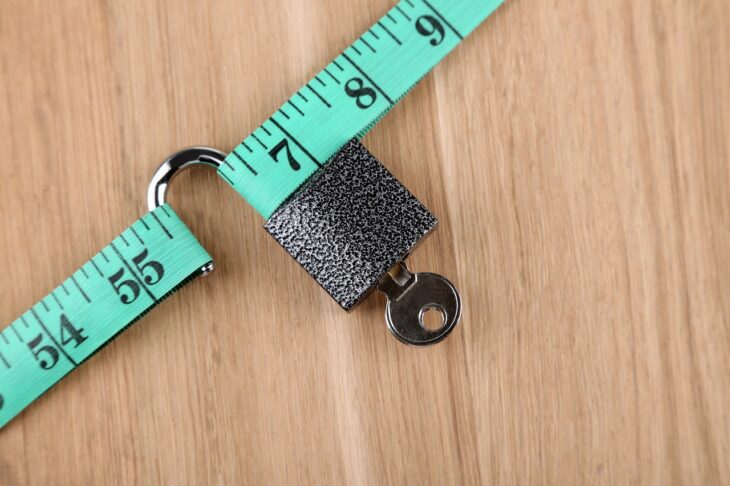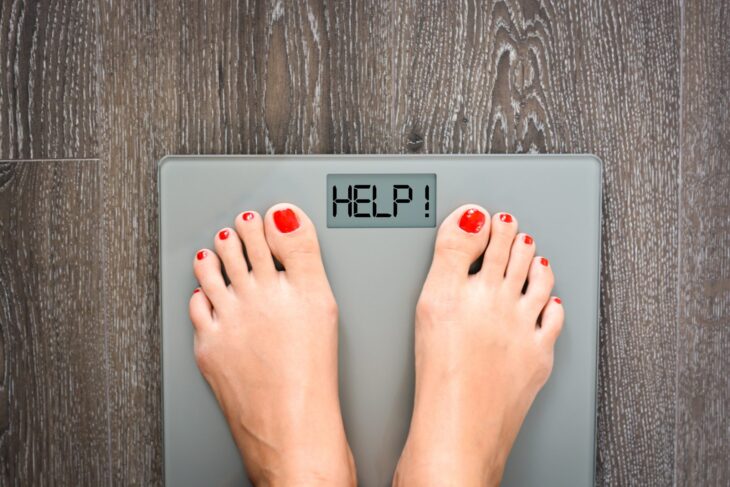One of the most effective ways to control your weight or lose a few pounds is to adopt a lifestyle that includes intermittent fasting.
It is more than a buzzword for the weight-loss industry. When you purposely restrict the calories you consume each week, you can produce some powerful results that reshape your mind, body, and soul.
Most people see remarkable successes with intermittent fasting during the first 4-6 weeks of this new lifestyle. Then their weight loss tends to plateau. Some individuals even find the numbers on the scale rising instead of falling.
When you know the primary reasons why you can hit a weight loss plateau while participating in intermittent fasting, then you can make the necessary adjustments to continue on your journey.
List of the Ways a Weight Loss Plateau Starts

Source: womenshealthmag
1. You aren’t tracking the calories during your eating window
The most common reason why a weight loss plateau happens involves calorie tracking. If you are giving your body too much to eat during your eating window, then no amount of fasting can help you solve this issue. The deficits experienced by the times when you only drink water, black coffee, or tea cannot offset the binging that occurs.
One of the easiest ways to fix this issue is to keep a food journal for 7-14 days. When you track everything that you choose to eat, then you can see objective data where your calorie increases are happening. Then you can pinpoint the places in your routine where you might fall short.
2. You don’t get enough exercise each day
If you want to see real weight loss results, then your focus must be on your eating patterns and how much exercise you get each day. Any strategy you implement requires the consumption of fewer calories and more movement. When you reach a plateau while practicing intermittent fasting, then it could be due to a lack of moving instead.
Instead of reducing your workouts, try to wear a fitness tracker that looks at your movement patterns. You don’t need to train for a marathon to achieve your weight loss goals. Adding ten minutes to a daily walk, incorporating another day of resistance training, or a similar change to encourage more activities can help the numbers on the scale to start falling again.

Source: goqii
3. You are eating the wrong food
If you are trying to lose weight by intermittent fasting, then you need to hit a few nutritional targets to ensure that your goals remain achievable. You should be consuming about 30% of your total calories in protein while having at least 30g of fiber per day. Less than 10% of your total caloric intake should involve simple sugars – including those that you can get when eating fruits and vegetables.
When your weight loss stalls, missing these targets is a common reason why that plateau starts forming. It can be tempting to eat simple sugars when fasting because it gives you a brief energy spike, but you must consume those in moderation. If you are missing any of the marks, then make the adjustments required right away. Furthermore, you can include supplements in your diet such as Leptitox, in order to enhance food digestion and facilitate weight loss. ScrutinyPortal reviewed the product so make sure you check it out.
4. You binge calories at the end of your daily window
People lose more weight when their caloric intake is evenly distributed throughout an eating window when practicing intermittent fasting. If you load up on calories at the end of your permitted time, then the result could cause your body to store more fat. When you follow the 16/8 protocol and load up right before bed, then the energy reserves go to digestion instead of consumption or repair.
Women who are overweight or obese can lose over twice the weight on the same number of calories when they eat more earlier in the day. This system works better because it matches your body’s circadian rhythms of blood sugar balance and cortisol production.

Source: cleanfoodcrush
5. You aren’t getting enough sleep at night
Sleep has a direct impact on your health quality. When you don’t get enough rest, or the quality of it is questionable, then you can find yourself trying to navigate a weight loss plateau. The time you spend at night has a direct impact on your metabolism, energy levels, hormone regulation, and appetite. If you feel tired all of the time, then your cravings will be for high-sugar foods that can negate the benefits of fasting.
Setting a structured bedtime can help you to improve your sleep quality. It also creates a healthy wakeup routine that gets you ready for the day. If you use a TV or tablet to fall asleep at night, then try to put the screens away. If you find it challenging to fall asleep right away, then consider a meditation session or reading a book to get in the mindset for sleep.
6. Your hormones could be out of balance
If you continue to struggle with a weight loss plateau while intermittent fasting, then there could be an issue with your hormone balance. Everyone has unique physical needs in this area, which means your doctor needs to run some tests to see if this is the issue. If you eat too many of the wrong foods close to bedtime, then your hormone systems can experience disruption. A cascade of insulin resistance issues can develop from this issue.

Source: themaclife
The best way to prevent this issue is to avoid excessively low caloric intake levels each day. You need to hit at least 1,200 calories to stop disruptions, although people who use restrictions instead of a complete fast may not benefit from this option. Then eat more in the morning when the metabolism is at its strongest.
If you experience a weight loss plateau while practicing intermittent fasting, then these ideas can get those numbers moving again. It can be an effective way to manage your health without making significant changes to your eating habits. This content should not be regarded as medical advice, which means your doctor is the only one who can tell you for certain why it could be a struggle to meet your health and wellness goals.
